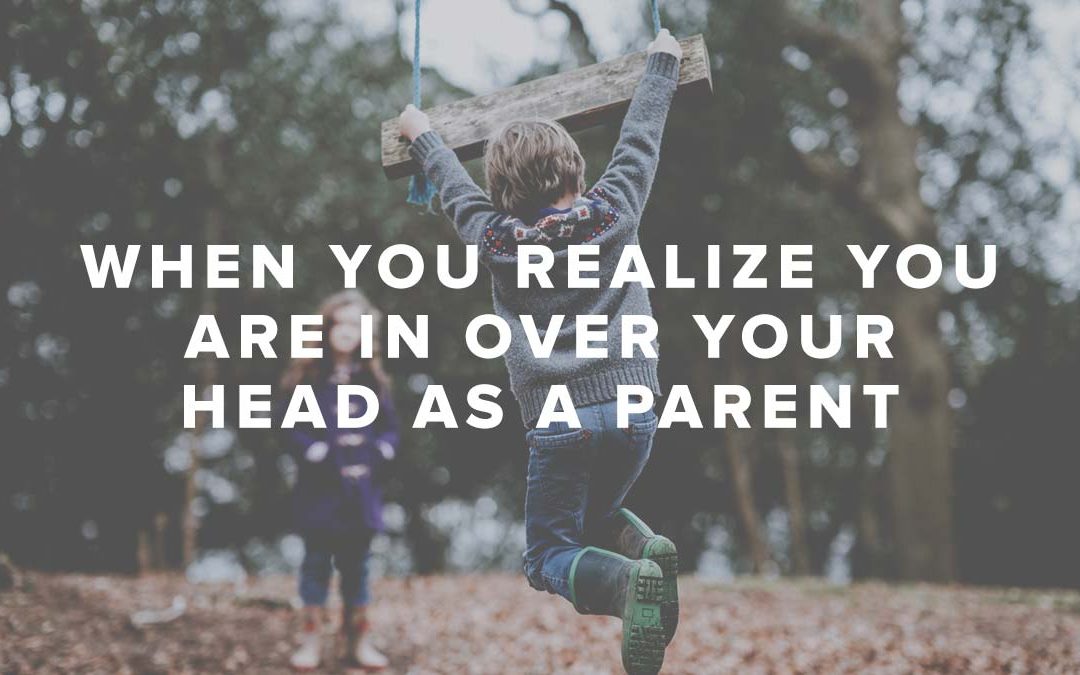There was shouting, there were tears, and then there was silence. And Lorrie and I just stood there as one of our daughters stormed out of the room. What do I do? Chase after her? Demand she come to us? Give her the “not in this home, young lady” speech?
Everyone tells you that parenting is tough, and they say that the teenage years are the worst, but until you’ve lived it—you have no idea.
And everyone has different levels of difficulty. An argument about curfew is different than an argument about drugs. A concern about getting a B instead of an A is much different than a concern about cutting. And I by no means want to equate any of the situations that we have gone through with anyone else’s. But the end result is often the same; we all have those moments when we feel we are in over our head, so what do we do?
Let me share five things to consider that can be applied to almost any situation.
1. What seems small to us is huge to them.
When we hear them tell us, “This is the worst day ever,” or “You all are ruining my life,” I’m tempted to smirk and say, “You have no idea,” and then launch into some story about kids in third world countries. And it’s true. Not getting an iPhone upgrade is not nearly as devastating as having to fight for food each day. But their 13 year old mind doesn’t always see it that way. In their small sphere of life, all they can conceptualize is their world. And in their world, this is the biggest thing to ever happen to them. Perspective doesn’t come with information, but with experience and time. Empathy and listening can go a long way.
2. Pick your spots.
Sometimes we want to address the issue right now and fix it. But time heals wounds and as mentioned, gives perspective. In the above-mentioned scenario, after she stormed off and went to bed, I decided to just let it go. Even though I was leaving town the next day. But it wasn’t long until I got an apology text. That would have never come if I’d gone in and demanded her to see it my way. Some of us like to deal with things in the moment, others need more time to cool down. Make an appointment with your child to discuss the problem and offer some possible solutions they can choose from. Let them have a part of reconciliation.
3. Administer the punishment without passing on shame.
It’s hard to hand down punishments such as, “No phone,” or, “I’m taking the car keys,” without sounding like they have failed you. But not passing on shame is a big part of parenting. Many of us are still trying to peel off the layers of guilt and shame we had piled on us as kids. This again is where clear consequences beforehand can help make the judgment easier to enforce. “I told you if you were late, then you wouldn’t get the car this weekend,” makes it their choice. Using your tone and watching your language can turn this into a teachable moment that will serve them in life. The other option is to let your emotions get the best of you and call names, yell and scream, and make them feel like a miserable human being. Probably not the better option. They need to know they are still loved, even if they are in trouble.
4. It takes a village.
When in doubt, ask. Taking a moment to say, “I’m going to need some time before we address this,” is a great way to get some time to ask others what they would do or have done. As we talk about often, we are better together. We need one another and can’t do this on our own. Plus the people you ask are often not seeing the situation as personal or as volatile as you are. Having some older couples in your life that have more perspective can help you know if this is even a hill to die on.
5. Talk about it later.
After the blow-up and the punishment, and the tears all subside, find a favorable time when they feel comfortable and not on the defensive and ask them how it went. You don’t have to say, “How’d I do as a parent last week when you drove the car over the bushes?” But you can say, “My goal in being your parent is to give you boundaries and then enforce them without making you feel shame. Is there any way I could have said what I said in a better way?” Talking about it shows humility on your part and gives them a safe opportunity to weigh in.
That’s just five ideas that when we do them, they help–most of the time.
What are you learning? Let me know on my Facebook Page and if this might be helpful for others, feel free to share.
To get this delivered to your inbox twice a week, subscribe to my newsletter in the sidebar.


Solid advice brother. Needed to hear this. Thanks
All I have to say is this just opened my eyes. This is going to help ME as a single parent right now raising 5 kids cause my husband is incarcerated. 3 of the 5 are teenagers15,14,13. I have been struggling with them . I am going to use these 5 items to help me and them deal with situations.
Thank you Rusty